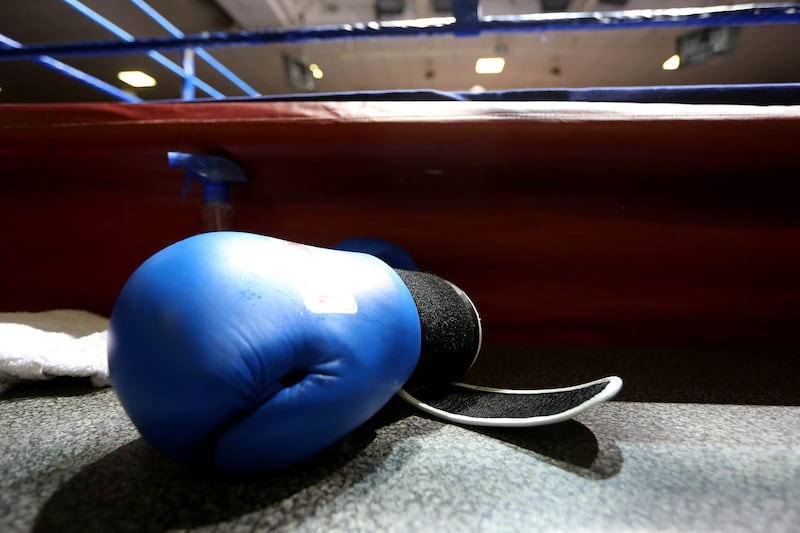On the desk in front of me in an anonymous unit in a business park on the outskirts of Waterford city is a stack of papers. Most of them are forms for first-time clients of the Society of St Vincent de Paul (SVP), a charitable organisation that has operated in Ireland since 1844, helping vulnerable members of society.
These forms have been filled in by employees of the society, who take client details over the phone. Included among the computer-generated forms are several handwritten letters, also from first-time clients, who found it easier to write down the story of their circumstances than to make a phone call.
One phrase catches my eye: “I don’t know who else to turn to.”
This sentiment is one I hear over and over again during the day I spend in this southeast region office, which covers Waterford, Wexford, Carlow, Kilkenny and Laois. It’s a Monday, their busiest day of the week, when staff pick up voicemails, emails and messages left via website forms over the weekend.
RM Block
The island of Ireland is covered by eight offices. David O’Neill, who has worked with the society for 19 years, is the southeast regional co-ordinator. In 2020 the region received 13,264 calls from the public, seeking help. Last year that number rose to 21,248. Food, fuel and energy bills are the most common areas that people seek help with.
“What is happening in this region is representative of all the other regions,” says O’Neill.
The majority of the calls are around food, and there are a lot of single parents, mostly women
— Ann Walsh
There are 10 staff in this office, all of whom are paid. Some work full-time, some part-time, and some are on Community Employment schemes.
Ann Walsh is listening to the voicemails left over the weekend, and taking calls from the public. First she logs names, addresses and contact numbers in a hardback notebook, then inputs the details into the computer system. There are a number of options on a drop-down menu to reflect the kind of help a caller is seeking.
Christmas help. Clothing. Communion/Confirmation. Debt/money-lending. Delay in social welfare. Education, primary/secondary. Education bursary. Electricity. Food and food vouchers. Funeral expenses. Gas. Health. Holiday. Household goods. Loneliness/isolation. Mortgage. Multiple issues. Oil. Rent. Solid fuel/coal.
Walsh breaks down some of these options for me. “Holiday” is a local day trip for a family who would not otherwise have any day out. “Household goods” can be furniture, in which case the caller is invited to visit their local SVP shop that stocks furniture, and choose a table and chairs, or whatever is needed. In the case of white goods, the society will provide half the cost of a midrange item, and the client pays the other half.
“Health” used to relate to situations such as someone experiencing bad toothache, who otherwise would have had to wait several months to be seen publicly. In the last three years or so, it has been extended to include a cohort of parents seeking to have their child privately assessed for autism or ADHD, which is an expensive process, routinely costing several hundred euro.
“The public waiting lists for these assessments are up to two years, or longer, depending on the area,” says Walsh. “But without the child getting a diagnosis, they can’t access the extra help they need in school.”
I spend some time that day sitting with Walsh as she logs calls. The rule is that people who need help must make contact themselves with the society. Sometimes a call will come in from a concerned neighbour, but no action can be taken unless the person in question makes the contact. In cases where the person needs help making a call, they can give consent to be with the concerned person while the call is made.
Every attempt is made to preserve the needful person’s privacy and dignity, which is why the society never makes a cold call to a house.
A call comes in from an older man who lives alone. He is a first-time caller. Walsh tells me that his cooker hob is broken. I ask if someone will be sent out to fix it. The answer is no. The society doesn’t employ technicians. This man will get help to buy a new cooker.
While I am sitting there, a member of the public calls to inquire about donating toys and electrical items for Christmas. SVP, in common with most other similar organisations, no longer accepts any electrical items for safety reasons. Since Covid, they prefer Christmas toy donations to be in the form of vouchers, so new toys can be bought.
More calls come in. People are looking for food vouchers, coal, logs and help with Christmas needs. “The majority of the calls are around food, and there are a lot of single parents, mostly women,” she says.
SVP buys supermarket vouchers in various denominations from Aldi, Lidl, Centra, Tesco, Dunnes Stores, SuperValu and, sometimes at Christmas, from Penneys. They buy them at a 5 per cent discount, with Dunnes giving a 10 per cent discount.
Vincent de Paul won’t work without volunteers ... We are finding it harder and harder to get younger people
— David O’Neill
Last year, the southeast office distributed €800,000 worth of vouchers alone in the region.
Sometimes first-time callers have experienced an unexpected financial setback. “There was a call from a couple who had just had their third mortgage increase in a year, and who needed their car to drop children to school, and the car had failed its NCT.” They had asked for food vouchers, so that some money could be allocated from their food budget to get the car fixed.
“There could be two cars outside on the drive, but the fridge is empty in the house,” says O’Neill. “This is hidden poverty, and it is much more widespread than you might think, particularly in the middle class.”
Walsh inputs all the details gathered from calls, voicemails and emails into a central computer system. That’s the end of her involvement with these clients, whom she never meets.
“I don’t know what happens to them after I log the information,” she says.
What happens next is that all this information is then picked up by one of the relevant area “conferences” in the southeast area. “Conferences” is the society’s legacy name for volunteer committees, which meet either weekly or fortnightly, depending on the needs of that area. There are 16 committees alone in Co Waterford.
Frances Flahavan is the SVP area president for Co Waterford, and has attended many committee meetings over the years.
“We look at the requests for help, and see what we can do. Sometimes we refer people with money problems on to MABS [the Money Advice and Budgeting Service], but you can’t budget if you don’t have any money,” she says.
Flahavan says requests from first-time contacts are followed up with a phone call, and then two volunteers visit the person’s house to better assess their needs. Volunteers visit homes in pairs, even if simply dropping off hampers or vouchers at the door, and do not go inside. “Visiting in pairs is the golden rule.”
Sitting alongside Walsh during the day, I have noticed some repeat names, with some logging up to more than 200 requests for help. Sometimes it’s on a weekly basis, sometimes monthly. I mention this to Flahavan. Is 200 requests a lot from one person or family? It is society policy to be nonjudgmental about all requests for help.
“That is a lot of requests. Those people have included SVP help in their weekly budget,” is what she says.
Volunteers such as Flahavan also give their time to make home visits and deliver hampers, in addition to meeting on a regular basis to review the requests for help. They also visit prisoners who do not have anyone else to visit them, and review requests for aid with education, including at third level. In this southeast area, there are 1,126 volunteers. A decade ago, the number was 1,850.
“Vincent de Paul won’t work without volunteers,” says O’Neill. The number of volunteers across the charity sector in Ireland continues to drop steadily. “We are finding it harder and harder to get younger people,” he says. He means people in their 30s and 40s, which apparently qualifies as young for a volunteer. Their core cohort of volunteers consists of people who have retired. “But we have started to lose some of them too; for instance, grandparents are now becoming part of childcare arrangements in families.”
Last year, SVP ran a national media recruitment campaign for volunteers. It yielded just 11 for the southeast region.
Sinead Wall is the area’s membership development officer. “Giving your time is so valuable to us,” she says. One year is the shortest period a person can usefully commit to the society, between the time training and Garda vetting takes. Three to five hours a week after training is the usual ask, but the society is grateful for any time people can spare to help. svp.ie
Some reasons new clients contacted the SVP southeast office
- A broken washing machine.
- Need help to furnish an apartment without electrical appliances.
- Main breadwinner has cancer and the family need help with food and bills.
- Rent arrears and broken toilet.
- Gas has been cut off after bills were unpaid and a minimum payment of €300 is needed to get it turned on again.
- A person is sleeping in their car.
- Someone with young children is struggling with rent and bills and is in danger of eviction.
- A heavily pregnant woman needs help buying baby supplies.





















